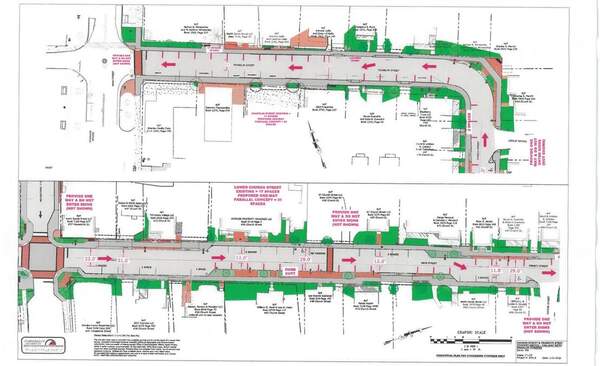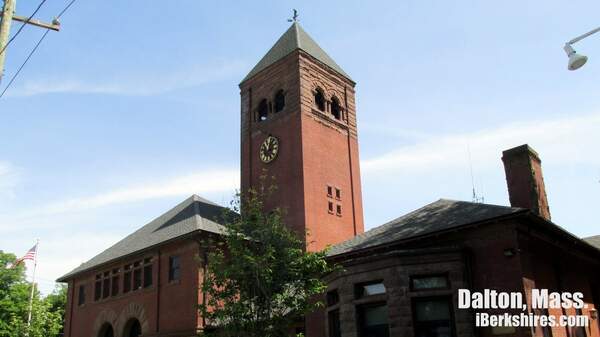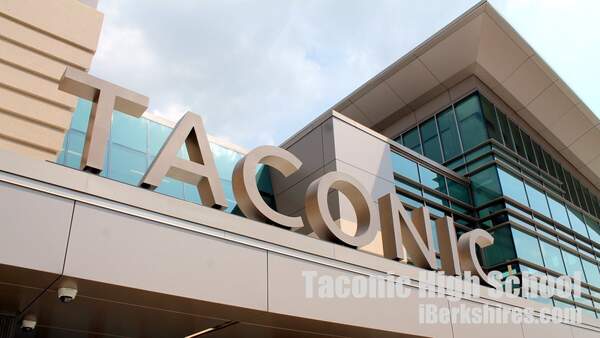Berkshire Athenaeum Eyes ARPA Funds to Support Social Services
PITTSFIELD, Mass. — The Berkshire Athenaeum is advocating for an allocation of American Rescue Plan Act funds to support social services at the library.
Director Alex Reczkowski told the Board of Trustees on Tuesday that visitors are often in need of services that reach beyond checking out a book and that he would like the facility to be a place where they can access them.
He began exploring the possibility of applying for ARPA monies to bring such services to the Berkshire Athenaeum on a regular basis.
The trustees supported the idea and a member proposed writing a letter of support to the city which, during early conversation, recognizes the need but is not sure that the library is the solution.
"I wanted to just give you all a heads up about how staff are really facing challenges with a lot of what we might think of as social service needs," Reczkowski said.
"So these are our needs that aren't met by traditional library resources like books and DVDs and audiobooks but for folks who need help navigating getting housing, navigating getting work, navigating some of the social services like mental health supports, substance abuse support, any range of those.
"So staff are carrying a lot for this community."
A social worker who co-responds for the Brien Center and the Police Department has been coming in once a week to talk with folks and Reczkowski has been working with partners in the Police Department's HUB model established earlier this year to have social workers spending more routine time at the library.
This was reportedly helpful because staff could ask the social worker questions and refer patrons to them.
He reported that a staff member has submitted their resignation because they believe the work extends beyond the expertise of a library staff member.
"One of the challenges is they're all stretched thin, so they're trying to just have their locations staffed that they can't say, 'I'll be at the library every Tuesday' because they're at their location every Tuesday," Reczkowski said.
"But even outside of the work hours, we have one of our part-time subs who has been working on some evenings and some Saturdays, recently submitted their letter of resignation. They're going to work a few more shifts, but they said that this work is really outside of the scope, it's beyond what they feel that they can really hold up as a library staff member, that the community needs are deeper, needier, harder, scarier and so it's, it's a real challenge."
This brought Reczkowski to approach the city's ARPA team Deanna Ruffer and Gina Armstrong to advocate for monies that support casework at the library. He has just gotten off the phone with them before the meeting.
He said it sounds like they recognize the need but are not convinced that a social worker stationed at the library would be the best solution but the conversation is continuing to happen, as this was the first major discussion of the proposal.
"It's really tough because if you take a top-level view, you see that there are all of these services in the community right here -- Second Street Second Chances, they just got funding and there is Community Navigators with Habitat for Humanity and there's community support options at the Brien Center and the Crane Center and Jones at Berkshire Health Systems and ServiceNet," Reczkowski added.
"There are a lot of services in our community but making that connection from you've walked into the library door to walking into these other service providers, making that connection for folks is really what we're looking for some support in doing."
The library has also had staff members participate in webinar trainings for working with different populations such as folks with mental illness and those who face homelessness and is working with Chief Diversity Officer Michael Obasohan for diversity, equity, and inclusion training.
Because of the heightened need in the community, Reczkowski believes that a person's entire day could be filled with supporting both the people who need social services and the library staff members.
"I would just like to really acknowledge and commend the staff because that is such labor to meet people where they're at and to uphold the welcoming atmosphere that the library truly is in our community," Trustee Thasia Giles said.
Vice President Pamela Knisley emphasized the importance of meeting people where they are for services. She later proposed writing a letter to support ARPA funding for the initiative.
"It would be great to figure out a way to communicate with some of those service organizations that they need to meet people where they are and that does rely on them walking in their doors," she said.
She framed this as a staff retention issue because it would support the library workers as well as the community.
Reczkowski said a letter of support could be a possibility but there is not a clear avenue for it quite yet, recognizing the formal process that organizations go through to apply.
The impact of COVID-19 on the availability of services at the library was also highlighted.
"I will say that looking at the models that we had before COVID, over the past months I've been trying to rebuild that, where we had Healthy Steps coming and doing medical screenings once a month, we had the Salvation Army here twice a month with meals, we had ServiceNet multiple times a week providing living and recovery or shelter counseling, there are some more of that," he said.
"But all of those places got strained because of COVID and as the strain happens, their ability to support us gets strained and so ideally, my sense is that it's acute right now that if we could re-support staff and support patrons and making those connections that could help get us over the hump, that we could rebuild some of that. But I don't know what that timeline looks like, so that was the conversation I was having with the ARPA team because ARPA is, of course, a one-time infusion of funding, it's not a long-term programmatic change."
The trustees also accepted a $127,200 line-item budget for the fiscal 2023. It is about $2,000 less than the expected the fiscal 2022 trust fund expenditures of $129,450.
Tags: ARPA, berkshire athenaeum,















